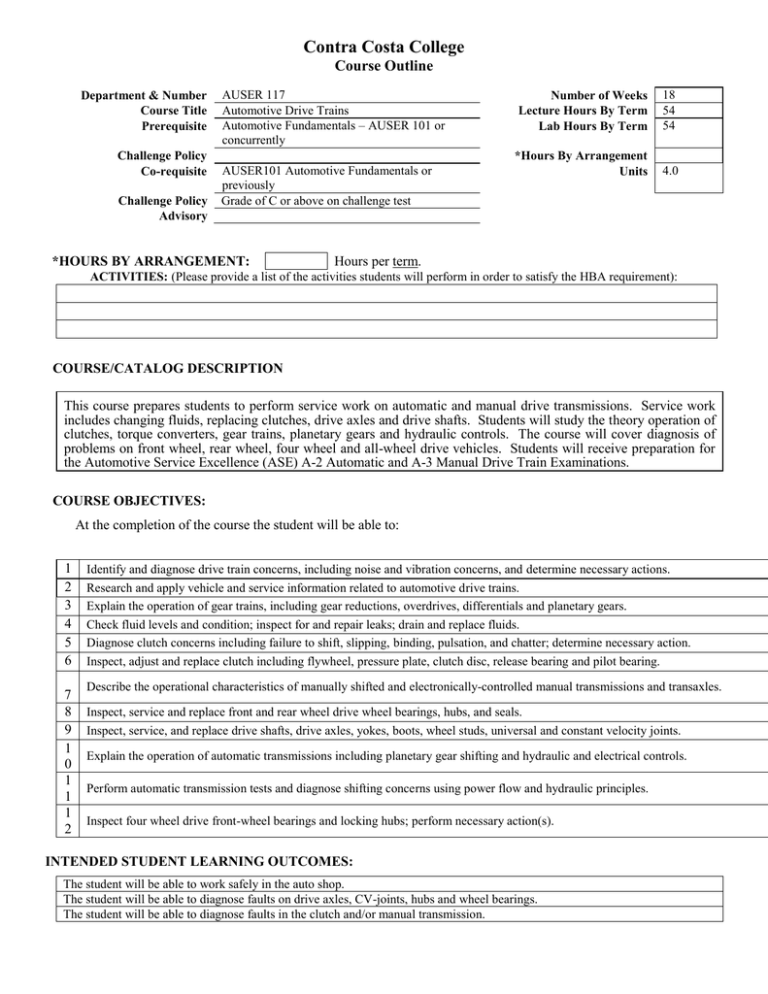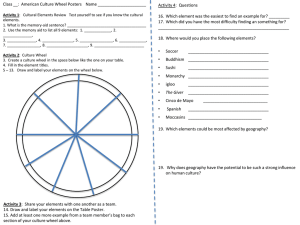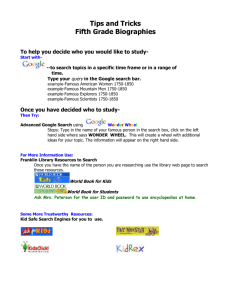
Contra Costa College
Course Outline
Department & Number
Course Title
Prerequisite
Challenge Policy
Co-requisite
Challenge Policy
Advisory
AUSER 117
Automotive Drive Trains
Automotive Fundamentals – AUSER 101 or
concurrently
AUSER101 Automotive Fundamentals or
previously
Grade of C or above on challenge test
*HOURS BY ARRANGEMENT:
Number of Weeks
Lecture Hours By Term
Lab Hours By Term
18
54
54
*Hours By Arrangement
Units
4.0
Hours per term.
ACTIVITIES: (Please provide a list of the activities students will perform in order to satisfy the HBA requirement):
COURSE/CATALOG DESCRIPTION
This course prepares students to perform service work on automatic and manual drive transmissions. Service work
includes changing fluids, replacing clutches, drive axles and drive shafts. Students will study the theory operation of
clutches, torque converters, gear trains, planetary gears and hydraulic controls. The course will cover diagnosis of
problems on front wheel, rear wheel, four wheel and all-wheel drive vehicles. Students will receive preparation for
the Automotive Service Excellence (ASE) A-2 Automatic and A-3 Manual Drive Train Examinations.
COURSE OBJECTIVES:
At the completion of the course the student will be able to:
1
2
3
4
5
6
7
8
9
1
0
1
1
1
2
Identify and diagnose drive train concerns, including noise and vibration concerns, and determine necessary actions.
Research and apply vehicle and service information related to automotive drive trains.
Explain the operation of gear trains, including gear reductions, overdrives, differentials and planetary gears.
Check fluid levels and condition; inspect for and repair leaks; drain and replace fluids.
Diagnose clutch concerns including failure to shift, slipping, binding, pulsation, and chatter; determine necessary action.
Inspect, adjust and replace clutch including flywheel, pressure plate, clutch disc, release bearing and pilot bearing.
Describe the operational characteristics of manually shifted and electronically-controlled manual transmissions and transaxles.
Inspect, service and replace front and rear wheel drive wheel bearings, hubs, and seals.
Inspect, service, and replace drive shafts, drive axles, yokes, boots, wheel studs, universal and constant velocity joints.
Explain the operation of automatic transmissions including planetary gear shifting and hydraulic and electrical controls.
Perform automatic transmission tests and diagnose shifting concerns using power flow and hydraulic principles.
Inspect four wheel drive front-wheel bearings and locking hubs; perform necessary action(s).
INTENDED STUDENT LEARNING OUTCOMES:
The student will be able to work safely in the auto shop.
The student will be able to diagnose faults on drive axles, CV-joints, hubs and wheel bearings.
The student will be able to diagnose faults in the clutch and/or manual transmission.
COURSE CONTENT (Lecture):
Auto shop safety
Clutch & Manual transmission operation and service
Driveshaft, drive axle and wheel bearing operation and service
Automatic transmission and transaxle operation and service
COURSE CONTENT (Lab):
Auto shop safety
Clutch & Manual transmission operation and service
Driveshaft, drive axle and wheel bearing operation and service
Automatic transmission and transaxle operation and service
METHODS OF INSTRUCTION:
Shop Work
Lecture
Discussion
Demonstrations
INSTRUCTIONAL MATERIALS:
NOTE: To be UC/CSU transferable, the text must be dated within the last 7 years OR a statement of justification for a text beyond the
last 7 years must be included.
Textbook Title:
Author:
Publisher:
Edition/Date:
Textbook Reading Level:
Justification Statement:
Automotive Technology: Principles, Diagnosis, and Service
James D. Halderman
Pearson Prentice Hall
Fourth Edition / 2012
10.2
(For textbook beyond 7 years)
Lab Manual Title (if applicable):
Author:
Publisher:
Edition/Date:
OUTSIDE OF CLASS WEEKLY ASSIGNMENTS:
Title 5, section 55002.5 establishes that a range of 48 -54hours of lecture, study, or lab work is required for one unit of credit.
For each hour of lecture, students should be required to spend an additional two hours of study outside of class to earn one
unit of credit.
State mandates that sample assignments must be included on the Course Outline of Record.
Outside of Class Weekly Assignments
Hours per week
Weekly Reading Assignments (Include detailed assignment below, if applicable)
2
Read chapter 122 on Manual Transmissions/Transaxles.
Weekly Writing Assignments (Include detailed assignment below, if applicable)
Answer the review and chapter quiz questions at the end of chapter 122.
Weekly Math Problems (Include detailed assignment below, if applicable)
2
Lab or Software Application Assignments (Include detailed assignment below, if applicable)
Other Performance Assignments (Include detailed assignment below, if applicable)
STUDENT EVALUATION: (Show percentage breakdown for evaluation instruments)
Course must require use of critical thinking, college-level concepts & college-level learning skills.
For degree credit, course requires essay writing unless that requirement would be inappropriate to the course objectives. If writing
is inappropriate, there must be a requirement of problem-solving or skills demonstration.
% Essay (If essay is not included in assessment, explain below.)
%
%
%
50
50
%
%
%
Computation or Non-computational Problem Solving Skills
Skills Demonstration
Objective Examinations
Other (describe)
Shop Work, Participation and Professionalism
Tests and Quizzes, Classroom Work and Homework
GRADING POLICY: (Choose LG, P/NP, or SC)
Letter Grade
90% - 100% = A
80% - 89% = B
70% - 79% = C
60% - 69% = D
Below 60% = F
Pass / No Pass
70% and above = Pass
Below 70% = No Pass
Prepared by: Lucile Beatty
Date: 2/17/14
Revised form 01/14
x
Student Choice
90% - 100% = A
80% - 89% = B
70% - 79% = C
60% - 69% = D
Below 60% = F
or
70% and above = Pass
Below 70% = No Pass





